The pioneer of upvc rooftile manufacturing in Iran!
+9120465839
Sales unit Connection
home » article • دستهبندی نشده » False Ceiling: Types, installation, pros and cons
If you have a finished or partially finished room or basement and you’re wondering what to do about the overhead, well, a suspended or false ceiling could be the answer.
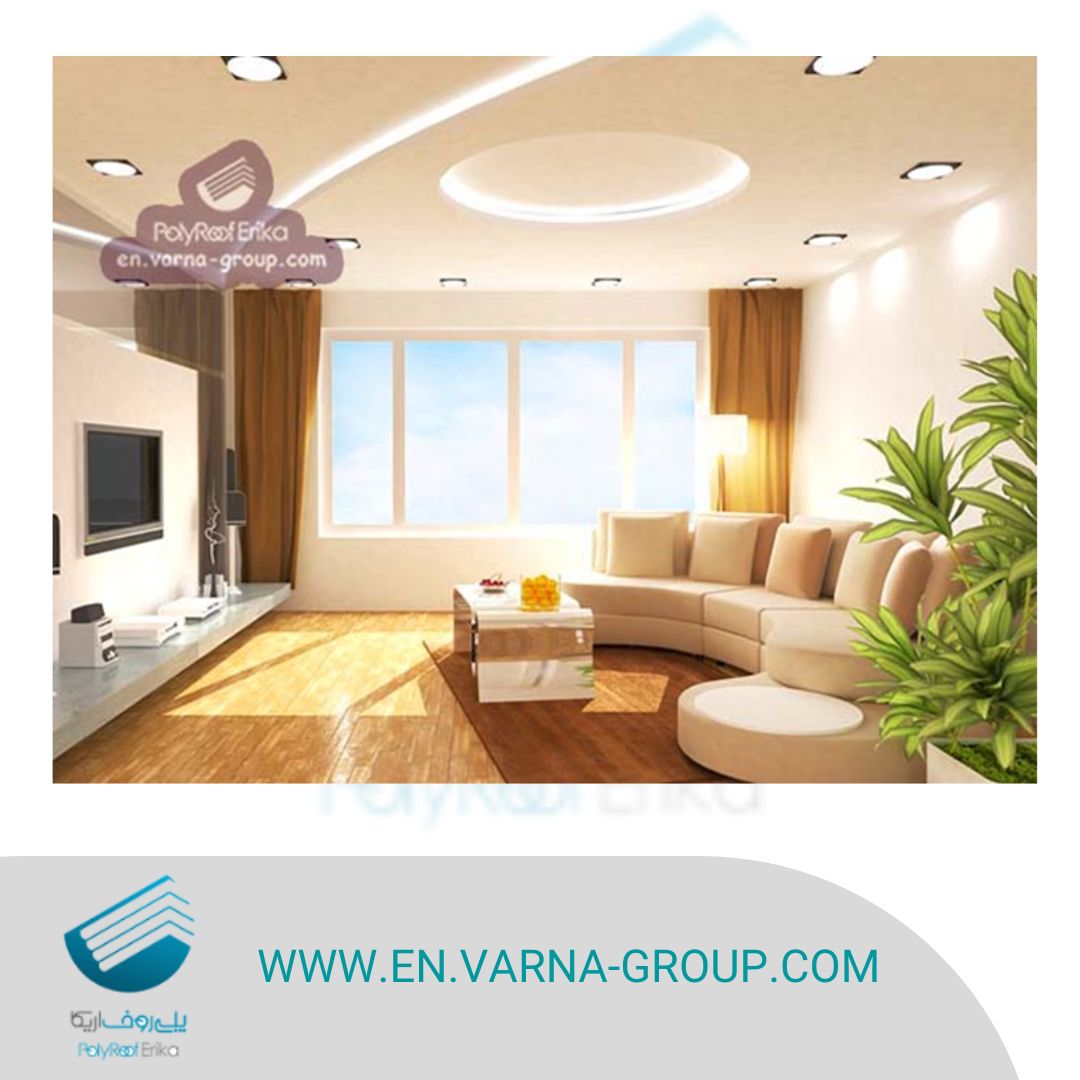
There are several advantages to a dropped ceiling. It conceals plumbing and electrical cables yet gives access to pipes and wires if it is needed for roof repairing or maintenance. This also gives the basement a modern and finished look that brightens everything up. In this article we will discuss the most common types, pros and cons and installation process of false ceiling grids.
A false or suspended ceiling which is also called a drop ceiling, is a type of coating that hangs below the main structural ceiling. It is usually suspended by wooden or metal frames. Drop ceiling is the most common and the fastest way to complete an unfinished area. They are versatile enough to be constructed in homes of any size with modern architecture designs.
They are usually mounted at a minimum distance of 8 inches from the original ceiling. Whether built simply or designed with a modern pattern, it conceals all the necessary mess, but provides access to wires, cables, ducts, light fittings, etc. when needed. Your false ceiling can also reduce sound transfer from one room to another or stop sound from coming upstairs, and enhance the overall appearance of a space.
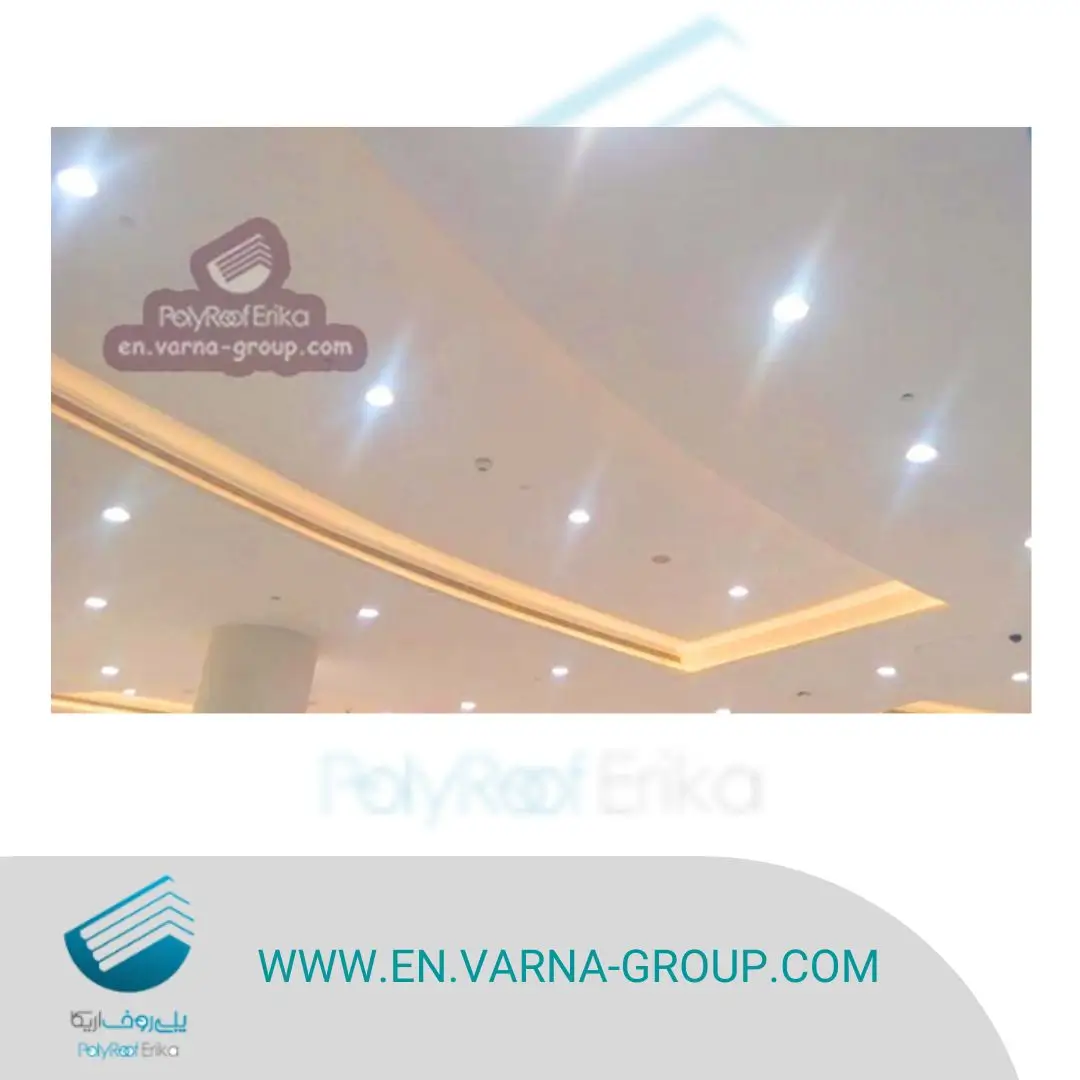
What are the main advantages and disadvantages of false ceiling?
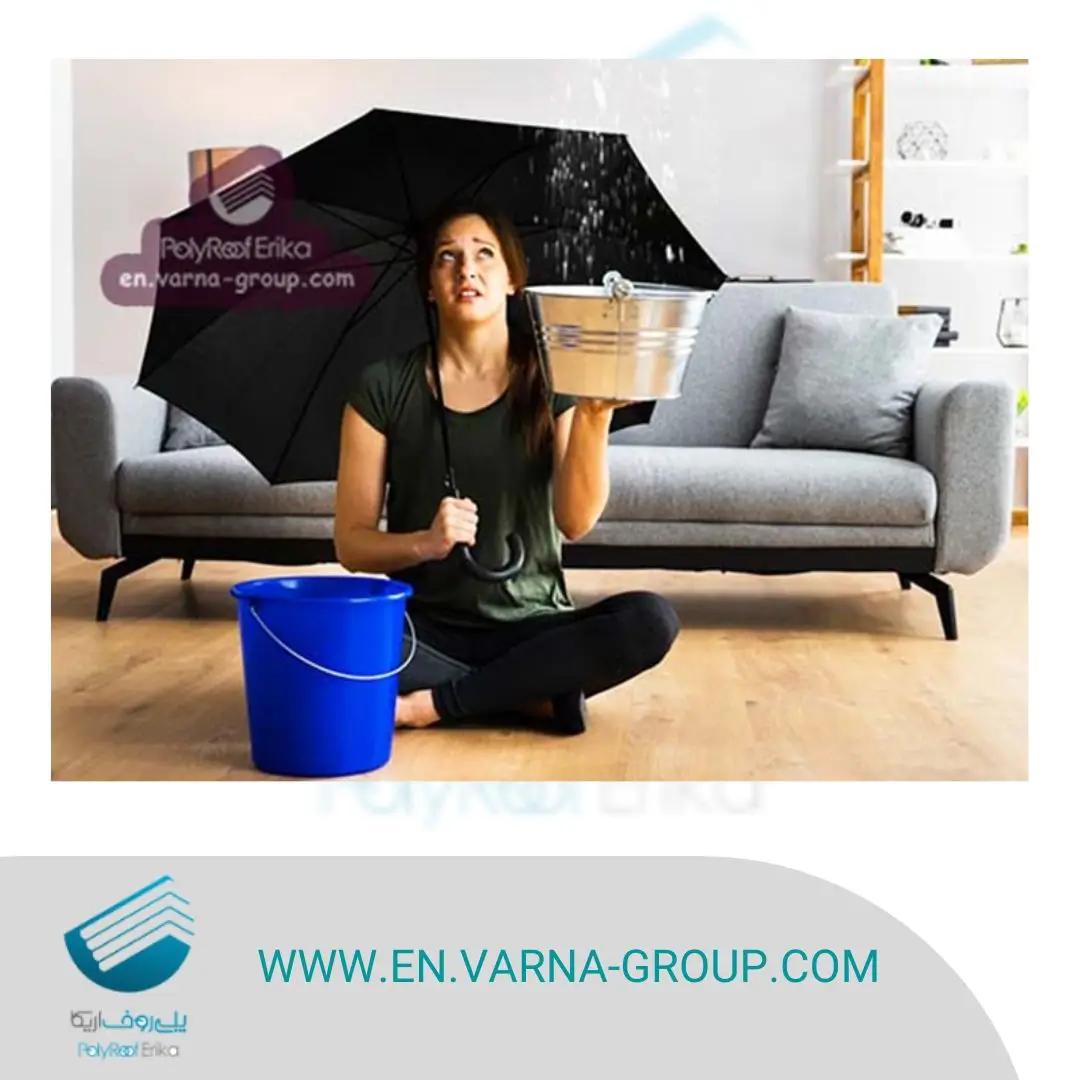
Reduce the height
One of the major drawbacks of false ceiling is that it can reduce the height of a room by several inches or feet, since it is hung below the existing ceiling and need to cover its internal elements.
Regular maintenance
Grid false ceiling requires frequent maintenance and does not have long life. It is just a suspended ceiling that is extended from the main ceiling. With heavy lightings and wirings installed inside, it becomes absolutely necessary to do a regular cleaning. If the materials used for ceiling are very flexible and not sturdy enough, they may end up sagging due to the weight of the hidden ducts and wires and also the panels gets decolored or stained much sooner than expected.
Unstable Ceiling
False ceilings are not as solid as the traditional ceilings – especially in case of natural calamities like earthquakes – if not properly stabilized, they can become unstable and eventually collapse.
Susceptible to uninvited guests
The hidden gaps in the false ceilings are often prone to cockroaches, molds and fungal growth. Thus it becomes necessary to clean joints and gaps from time to time and install proper ventilation equipment to reduce the level of moisture and humidity. So make sure you are using high quality and low maintenance drop ceilings.
Cost of false ceiling
While grid ceiling has beautiful look and many other advantages, the installation and material can be costly compared to traditional ceiling. The price of drop ceiling varies based on different grid ceiling material.
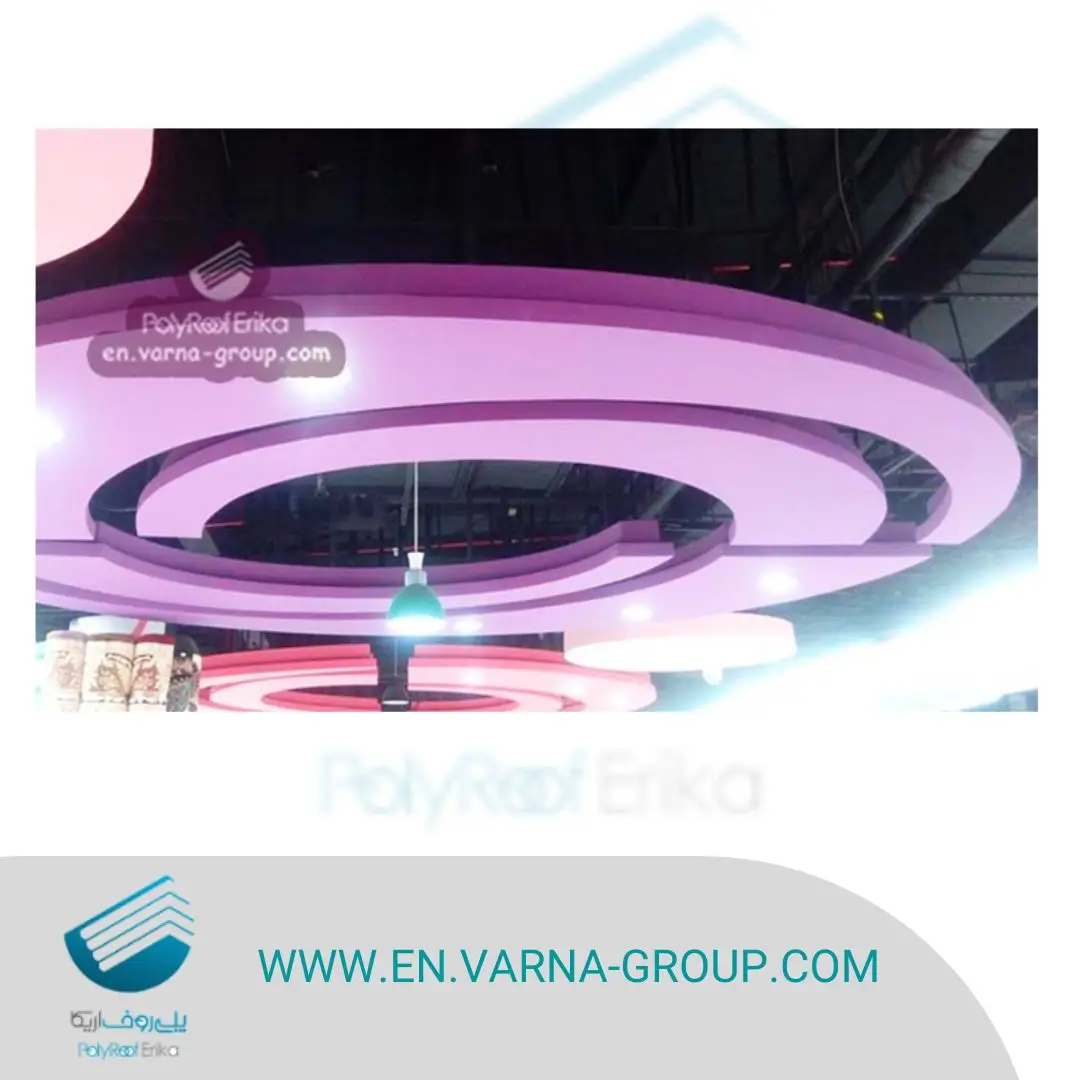
Gypsum false ceiling is made of hydrated sulfate of calcium. This type of false ceiling is lightweight, sound insulated, fire resistance, soft and thermally insulated. This comes in the shape of square boards that are hanged off the ceiling with metal or wooden frameworks.
The finishing work on boards with light paints, laminates, wallpapers and texture finish gives good look. However the main disadvantages of gypsum drop ceiling is that they are not resistant to water and cracking.
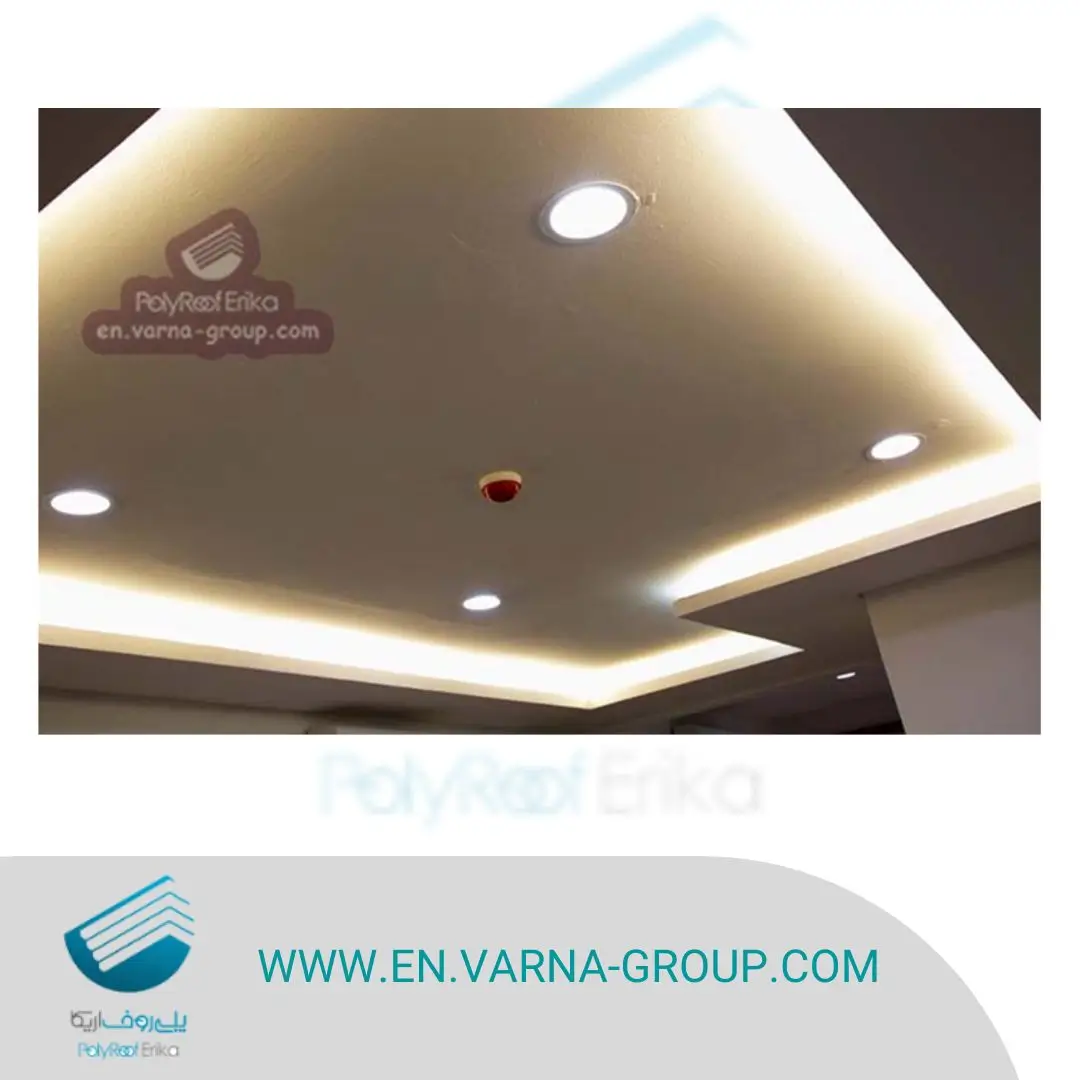
POP or Plaster of Paris false ceiling is shaped into modern and attractive designs. It needs not much maintenance and has a long lifespan and is a good insulator. These types of suspended ceilings don’t only hide the ugly members of structure, wires and ventilation ducts but also give smooth finish to the ceiling. However, POP is not suitable for exterior finish in humid or coastal areas as it is not resistant to moisture.
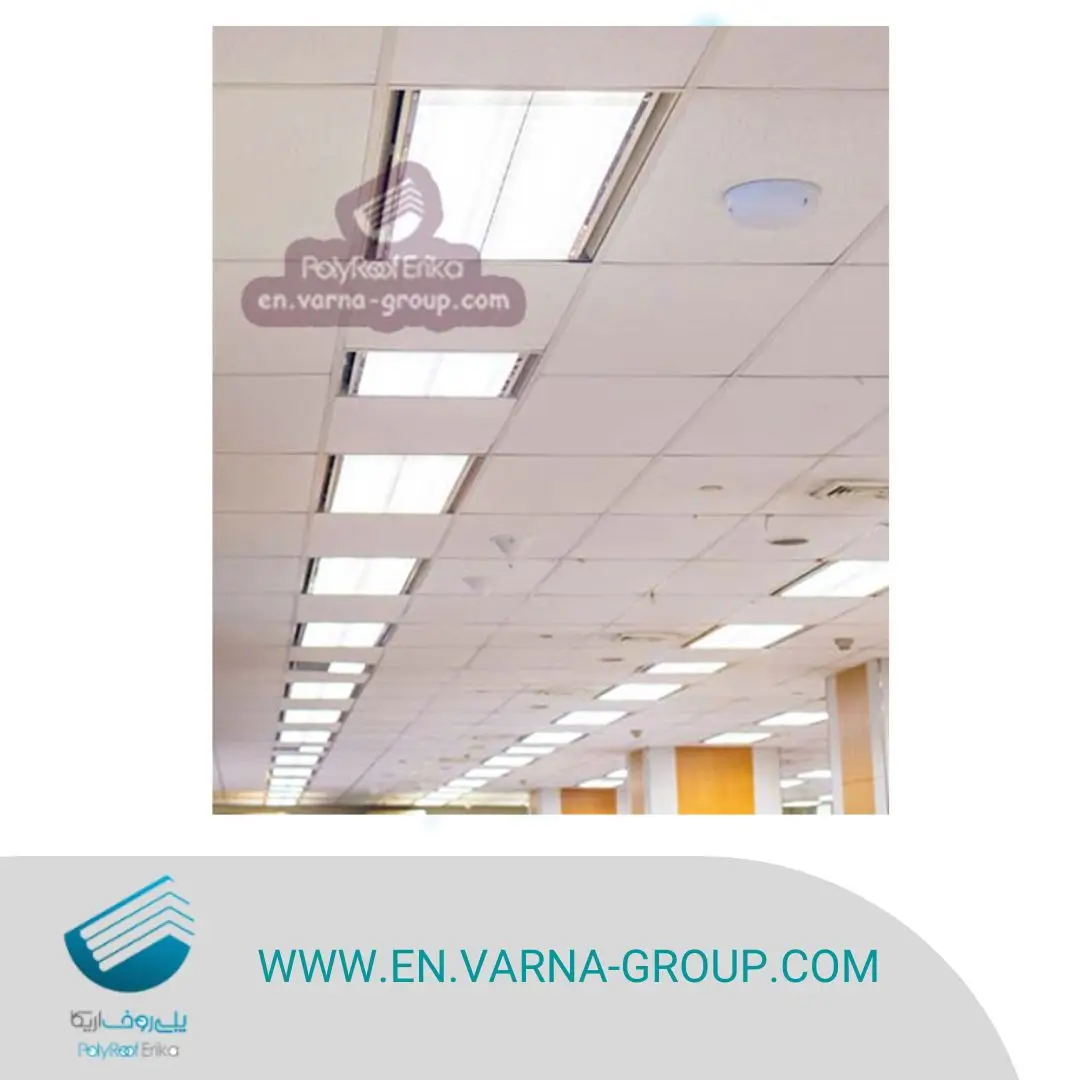
Fiber material is in high demand for the construction of false ceiling due to low cost and easy installation. The material used to manufacture dropped ceiling panels are man-made by synthetic and natural minerals. As these are man-made they come in many shapes and sizes and are often used in office ceilings.
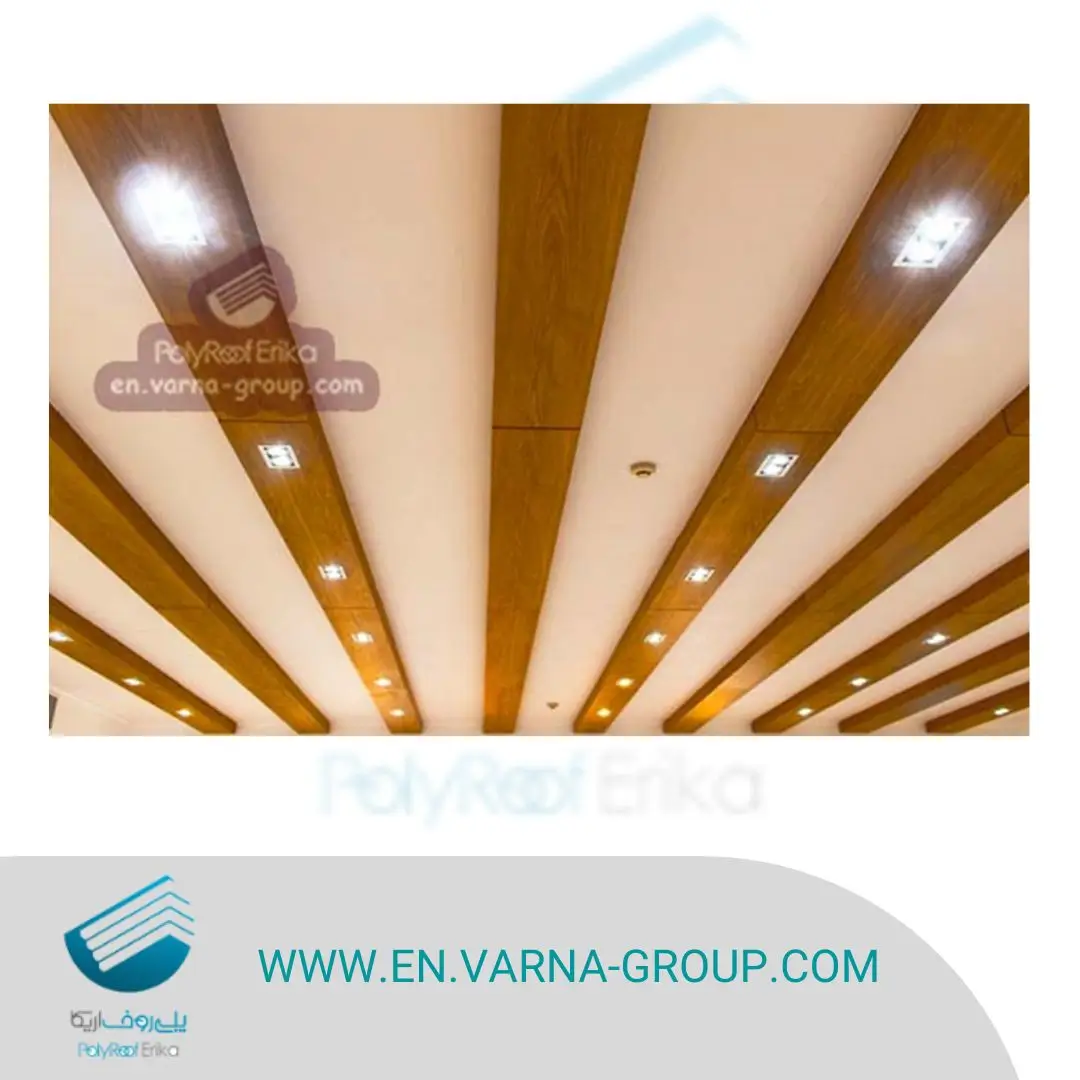
Due to its natural grain and textures, wood has found its way onto the fifth wall many times. Nowadays this types of false ceiling are used commonly as it gives a pleasant look to the eyes. Due to its higher price – compared to gypsum and POP – wooden false ceiling is not used in malls and hospitals but can be installed in residential buildings. They can be given various finishes or painted to get the best look.
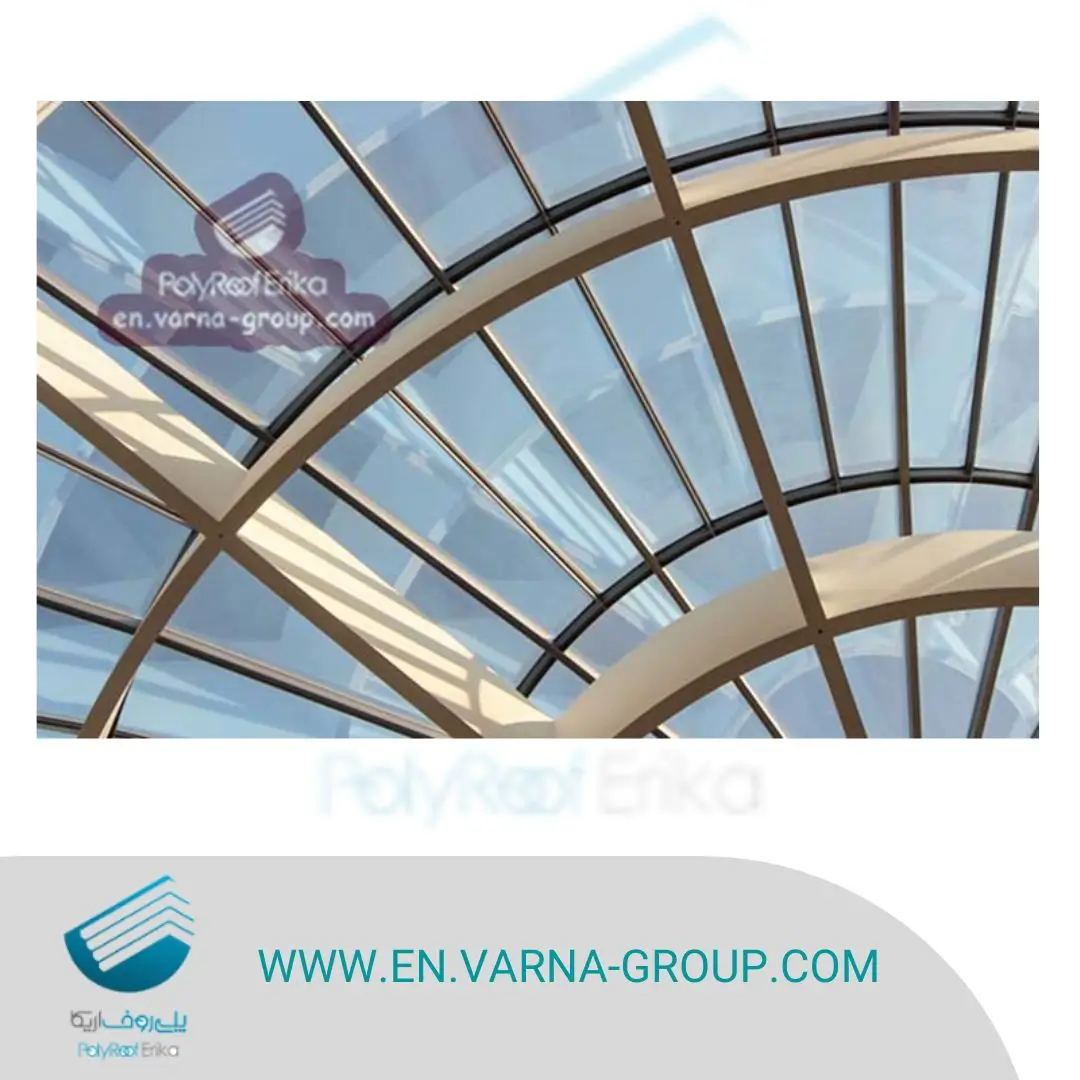
Another type of construction material used in false ceiling is glass. It is a non- crystalline material which is brittle and transparent. But this can be altered to make it non-brittle and non-transparent using some additives. As glass is a good insulator of heat, it can be used for false ceiling. Glass can improve aesthetical appearance of the building.
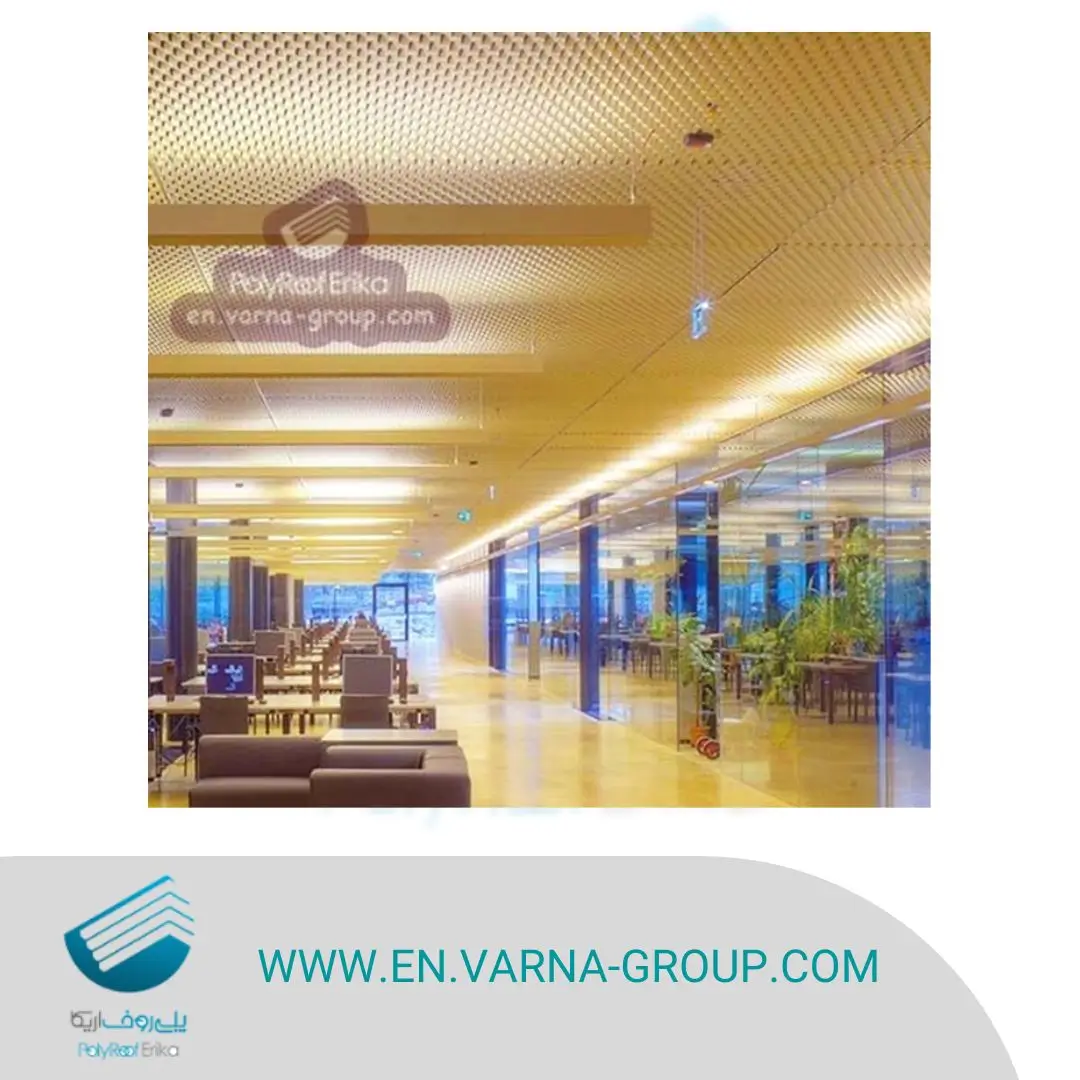
As metal is a hard and durable material it is used extensively in suspended ceiling grid. When the metal surface is polished, it gives a shiny and beautiful surface. The metals used for false ceiling grids are galvanized sheets and aluminum. This ceiling does not cost much, as they are easy to install and can be removed or reattached easily.
The materials used in this type of ceilings are either leather or cloth. They both are man-made materials and can be given any shape and design which improves the aesthetic view of interior of the building. As they collect dust and has low light transferring property, cloth ceiling is only used in temporary tents or other temporary buildings.
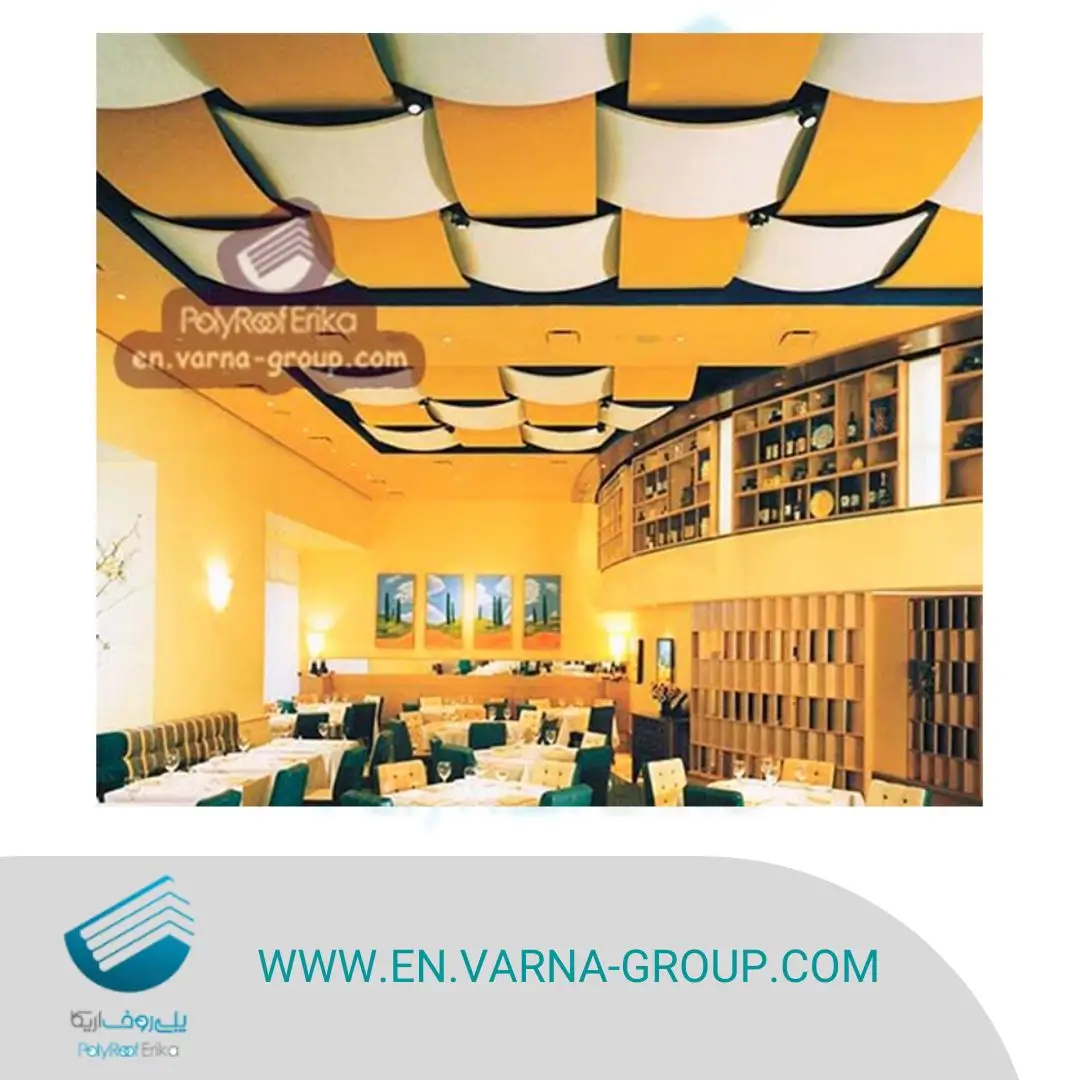
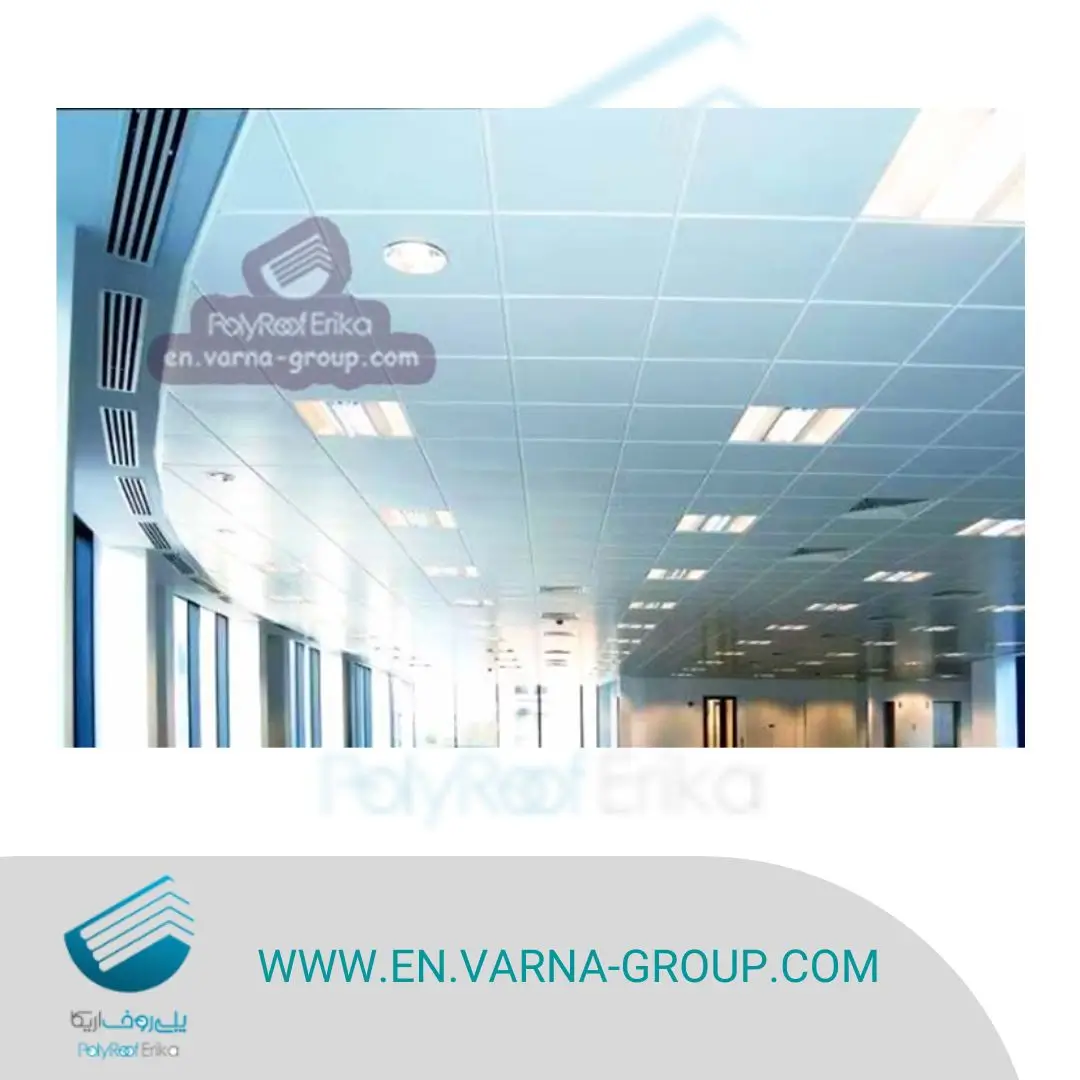
Unplasticised polyvinyl chloride or UPVC is an extremely durable and long-lasting material in grid ceiling and roofing system. UPVC makes a rigid ceiling, and it doesn’t flex. It is extremely resistant in temperature fluctuations. No mold or fungus activity has been ever reported when UPVC ceilings or roofs are installed. Due to the unique feature of uPVC, they are often used in bathroom drop ceiling.
For more information about our waterproof and maintenance-free UPVC false ceiling and roofs, please contact our experts at Sepidfam Varna Company.
(+98) 912 0465 839
Related: UPVC roof sheets
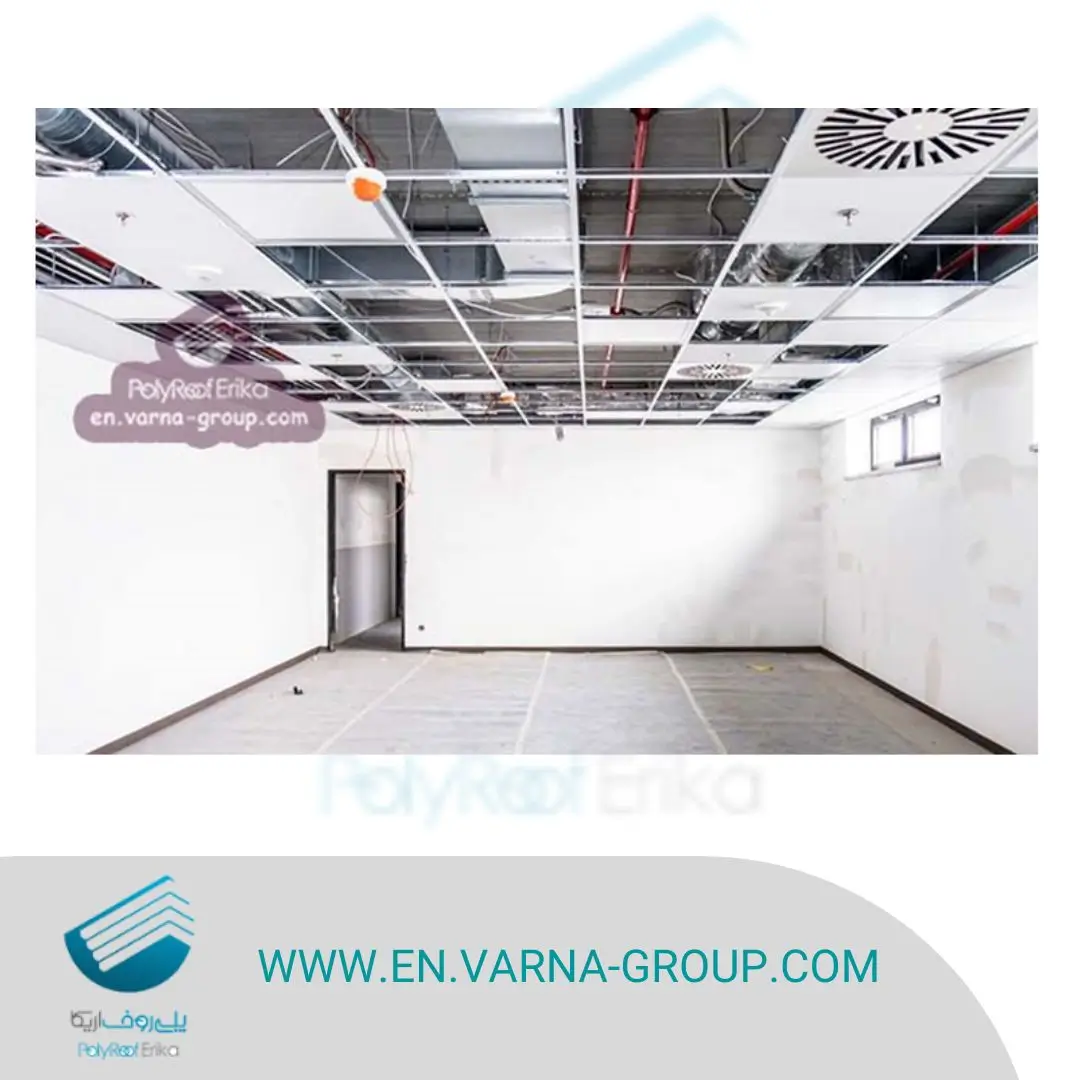
Suspended or false ceilings are usually installed in either a 2×4 or a 2×2 pattern. If you choose a 2×4 pattern, it tends to be more economical because there is less grid material. However, there are many more ceiling tile options if you choose a 2×2 pattern.
This is in case you are using separate ceiling tiles (and not gypsum material). A false ceiling has three main components:
Before starting to install false ceiling procedure, Wall moldings or rails need to be placed at the proper height. Because that determines the height of the ceiling and it needs to be level around the room using a carpenter square. You can measure it down from the bottom of the floor joint and make a mark to indicate where you want the top of the wall rail.
It is important to come down low enough to clear any obstructions yet high enough to maintain adequate ceiling height. Extending a level line all the way around the room can be done using a 4-foot Level or by measuring down at two points on a wall driving in a nail and striking a chalk line. The fastest and most accurate way to establish a level line around the room is with the laser level.
After false ceiling frames are installed, (Optional part: you can also make some holes to install the exposed lights). You can determine where your electrician, ventilation or even fire sprinkler head would be before finishing drop ceiling installation. One last step to complete installing your suspended ceiling would be the boards or tiles to be cut and installed into the grid.
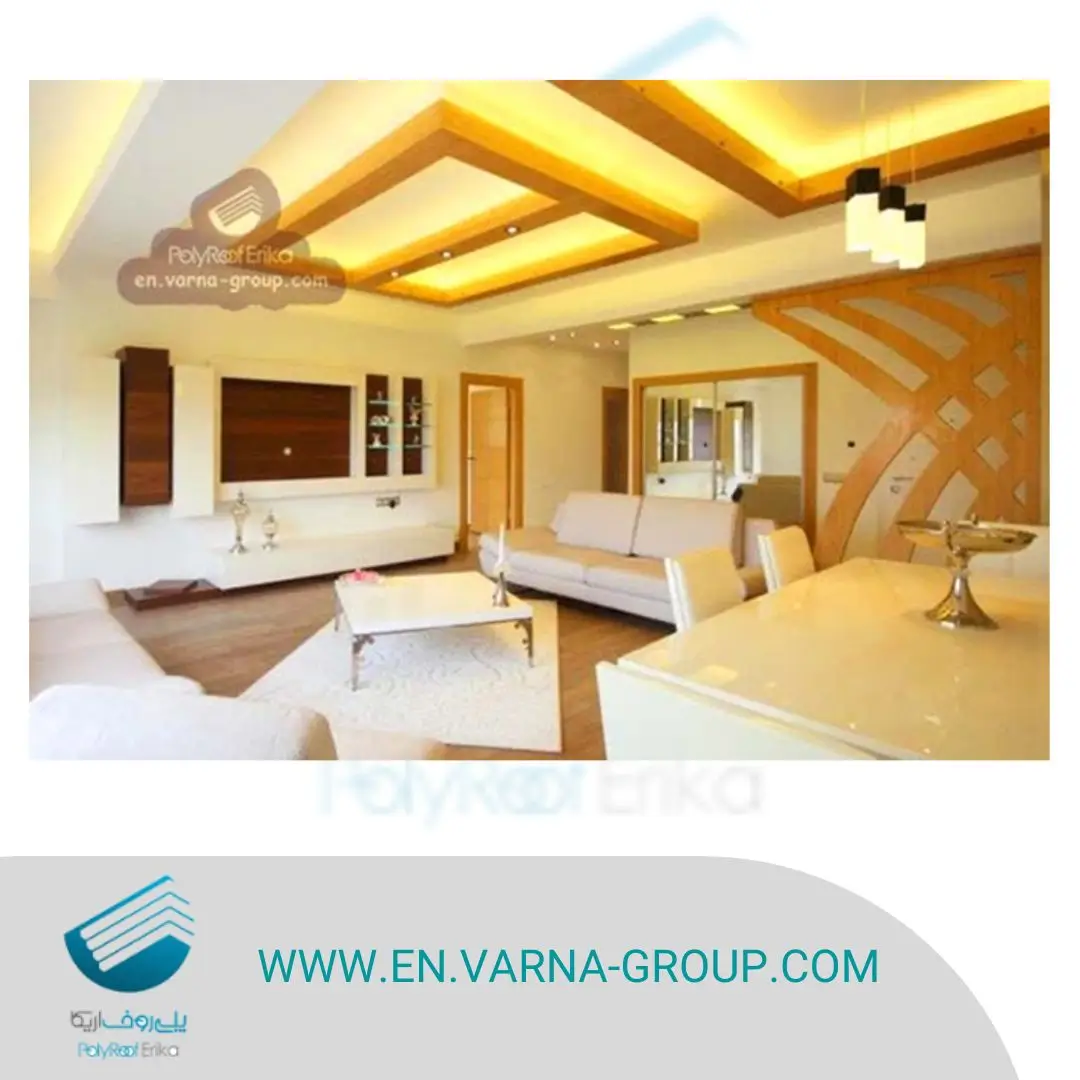
Why would I buy my drop ceiling from Sepidfam Varna Company?
Our principle in manufacturing of false ceiling materials as well as roofs has always been long lifespan of the panels, reducing prices and considering the budget of our clients. In this regard, our roofing manufacturers and specialists have always tried to build a beautiful, lightweight, waterproof roofing system with the minimum need for maintenance or repairing. And now our dream came true by using the most advanced machines for cutting and making beautiful UPVC boards.
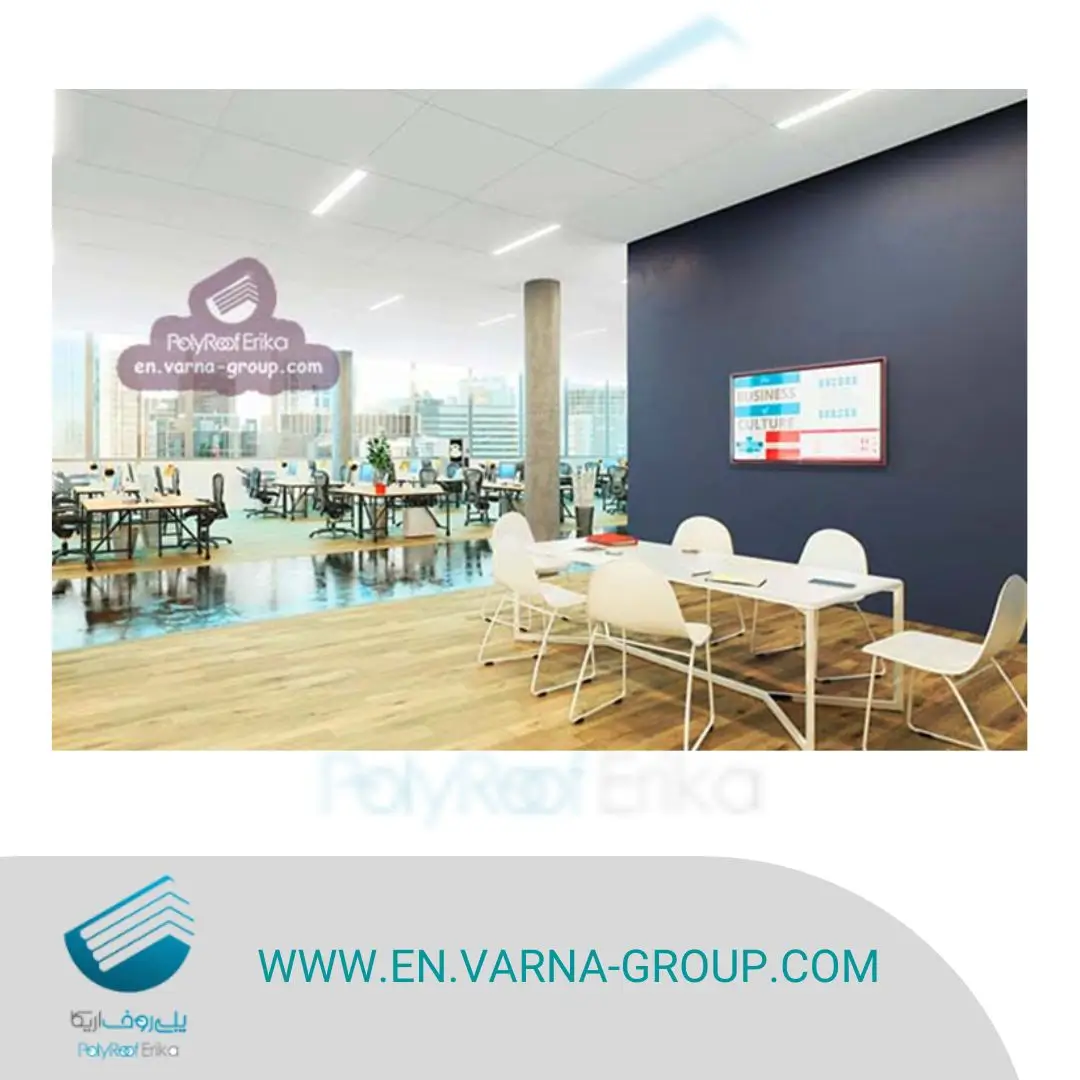
If you need to install a false ceiling for your home or store, best place to start is the comparison of the materials, pros and cons and considering your budget. Our experts at Sepidfam Varna will help you weigh the options to have better choice for your home or business. Please feel free to contact us at any moment:
(+98) 912 0465 839
What are the most common materials used in false ceiling?
Wood or plywood, glass, drywall: (also known as gypsum board or plasterboard), metal, UPVC, and fiberglass.
What is the cheapest drop ceiling material?
Gypsum boards are the most popular and the cheapest types of false ceiling. The minimum price starts from US $1.13 per square meter in 2023. In case of tiles – if you need the cheaper price, Choose minimal layers as much as possible to reduce the overall ceiling cost.
Which material is best for suspended ceiling?
If you are looking for a Jointless waterproof and energy saving suspended ceiling that can reduce your expenses, uPVC is the best option. Due to its light weight and high durability, it is easy to install. UPVC false ceiling is much resistant to damp, fire, pests and temperature changes, etc.
What is the minimum and maximum height of a false ceiling?
The minimum height is 7.5 feet and the maximum height is 9 feet.
What is the difference between UPVC and PVC false ceiling?
PVC materials have plasticisers, whereas uPVC ceilings do not. Plasticisers make PVC malleable and flexible. Hence they do not make sturdy false ceiling and danger of collapsing always exist. But uPVC on the other hand is hard and at the same time flexible which makes it ideal for grid ceiling. UPVC is the least maintenance material for all roof coatings and do not contain toxins such as Phthalates – unlike PVC drop ceiling.